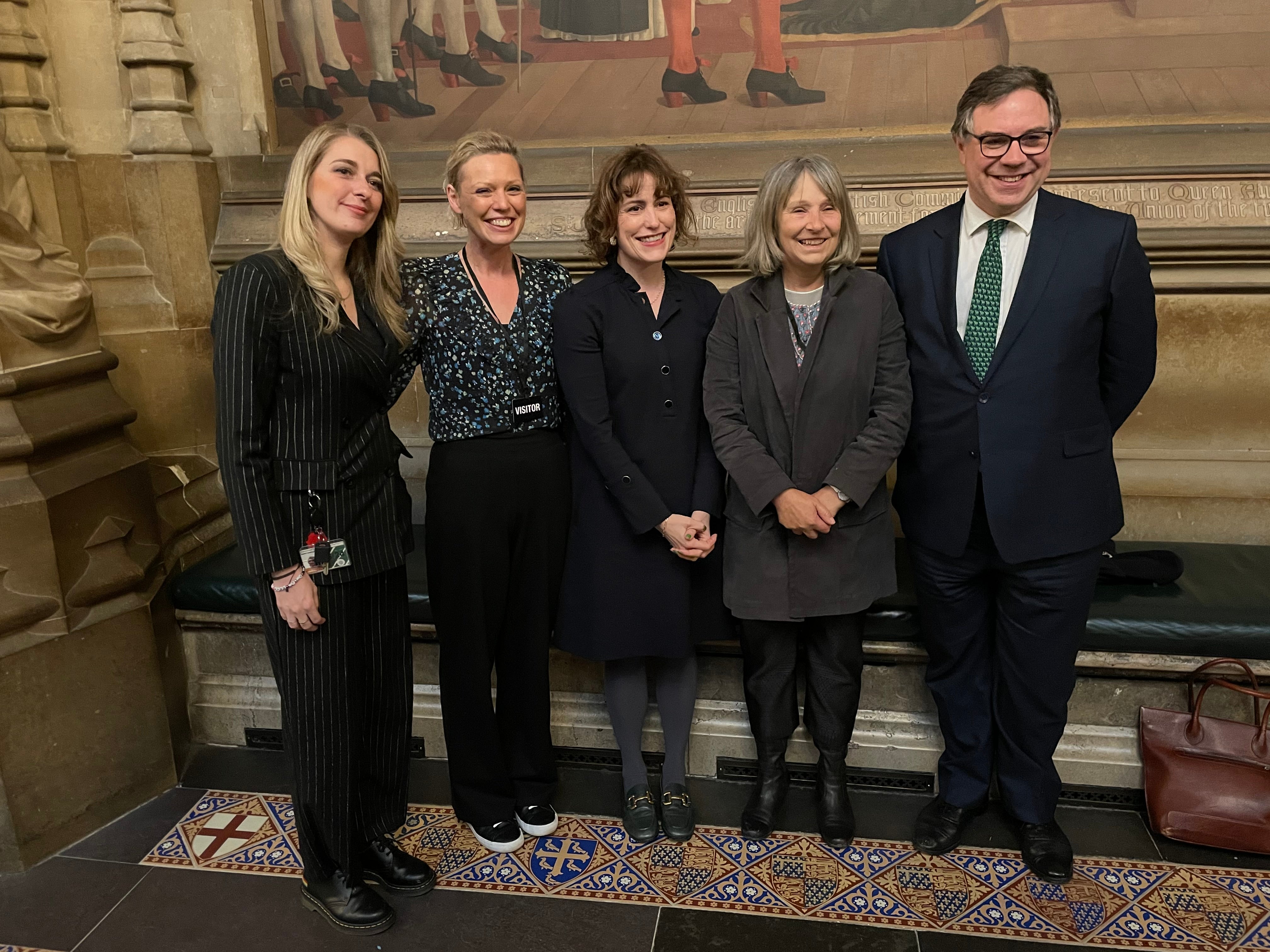Third of MPs call for £20m of funding for research on ‘forgotten’ breast cancer
Campaigners are calling for further research for the second-most common form of breast cancer in the UK

A third of MPs have rallied behind a campaign to raise £20m for research into a “forgotten” form of breast cancer with no “specific” treatment.
Around 15 per cent of breast cancers are invasive lobular, making it the second most common form in the UK after ductal breast cancer.
However, despite proven differences between the two, there is no “specific” treatment for lobular breast cancer and it remains widely underresearched.
Invasive lobular breast cancer begins in the cells that line the lobules, which are milk-producing glands, and spreads into the surrounding breast tissue.
Unlike other breast cancer types, lobular breast cancer is less likely to form lumps in breast tissue due to its unique single-file cell pattern.
It also means it is harder to detect on diagnostic scans such as mammograms and MRIs and therefore is sometimes diagnosed later.
Dr Susan Michaelis, 61, who has been diagnosed with terminal lobular breast cancer, launched a campaign last year calling for further research into the form of cancer.
Now, her call to secure government funding for research has garnered the support of more than 220 MPs.

She told The Independent: “When I was diagnosed with invasive lobular breast cancer in 2013 I asked the doctor ‘I beg your pardon, what’s that?’
“It’s the second most common form of breast cancer but it’s honestly a forgotten and hidden type.
“Breast cancer research is largely based on ductal breast cancer, which means treatments are as well - but they’re different forms.”
Research published in the Journal of the National Cancer Institute shows that there are “meaningful differences” between the two forms of cancer, supporting evidence that they require “different clinical management”.

In Dr Michaelis’ case, she initially became concerned when a spot on her breast appeared in 2013. A mammogram came back clear and it was not until the spot became redder that she had a biopsy, which confirmed she had lobular breast cancer.
She went on to have a double mastectomy and endocrine treatment, but her cancer returned in both 2016 and 2021. A full body MRI then showed that the cancer had spread to her bones.
“I’ve been through countless types of standard treatment for breast cancer to the point they’re running out of options now.” she said. “No one wants to be diagnosed with a disease that doesn’t have a specific treatment.”

Dr Michaelis’ personal experience promoted her to set up the Lobular Moon Shot Project to raise awareness and call for further research into treatment.
She contacted The Institute of Cancer Research (ICR), which told her £20m of funding over five years would allow it to carry out vital research on the disease and hopefully develop specific treatments.
She said: “Even though researchers already acknowledge that lobular breast cancer behaves differently to ductal breast cancer, to really understand the distinct biology of lobular, and to provide targeted therapies, there needs to be an intensive research project and that’s what we are proposing.”
There has never been a more crucial time to ensure that those with lobular cancer get the early diagnosis and effective treatment needed to save their lives
While the campaign has raised £75,000 through community funding, Dr Michaelis has turned to parliament for help.
Having delivered a petition to 10 Downing Street and met with the health secretary, Dr Michaelis has now secured the support of more than a third of parliament with help from fellow campaigner Katie Swinburne.
Like Dr Michaelis, Ms Swinburne did not have symptoms typically associated with breast cancer and initial tests did not discover the cancer.
By the time she was diagnosed with stage three lobular breast cancer in March 2023, her tumour was 6.5cm.
“Getting a cancer diagnosis turns your world inside out as it is. But to then find out you have to undergo treatment you’re not even sure is working feels so unjust,” she told The Independent.
Tory MPs Dehenna Davison and Sir Jeremy Quin, the first two MPs to support the project, said: “With over 220 MPs now backing the pledge to see funding for vital research, there has never been a more crucial time to ensure that those with lobular cancer get the early diagnosis and effective treatment needed to save their lives.”
To find out more about The Moon Shot Project click here.
Symptoms of invasive lobular breast cancer include:
- A thickening of the breast tissue
- A change in the shape or size of the breast
- A change of skin texture such as puckering or dimpling
- A lump or swelling under the arm
- Changes to the nipple
- Discharge from the nipple
- A breast lump (although this is less common)
Join our commenting forum
Join thought-provoking conversations, follow other Independent readers and see their replies
Comments
Bookmark popover
Removed from bookmarks